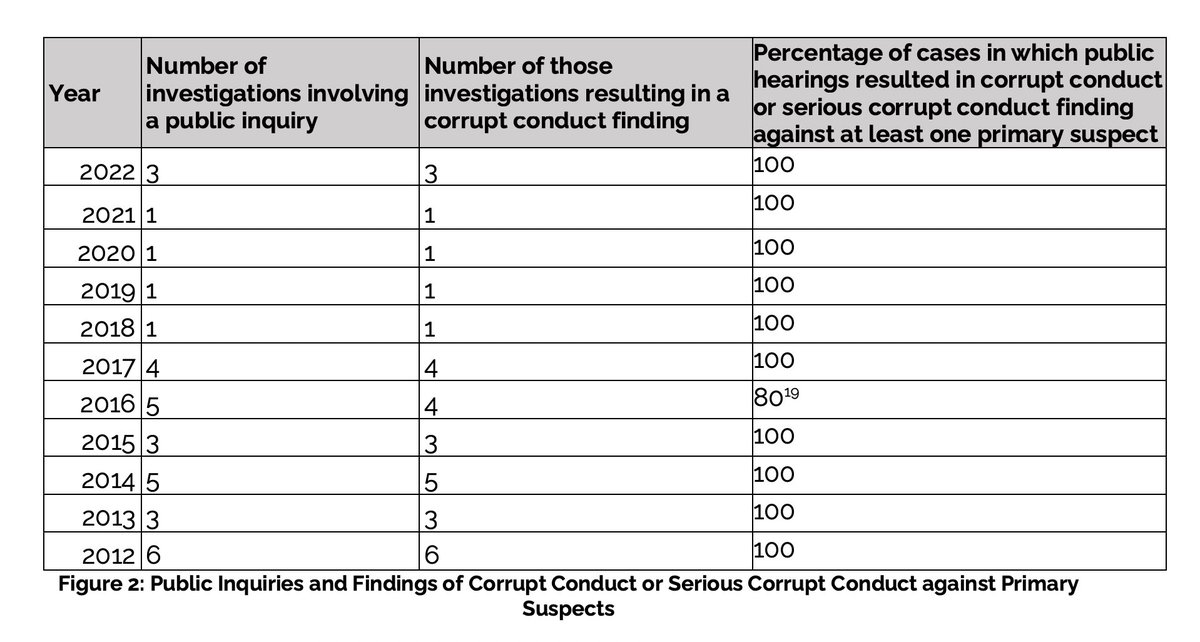
One of the major pushbacks to public hearings has been the concept of “reputational damage.”
This thread breaks down this idea in 7 parts
1/
#auspol #auslaw
This thread breaks down this idea in 7 parts
1/
#auspol #auslaw
In all investigations since 2012 which have involved public hearings, the NSW ICAC has made findings of corrupt conduct or serious corrupt conduct against at least one primary suspect.
2/
2/

The sole exception is Operation Spicer, where the High Court case of ICAC v Cunneen & s74BA of the ICAC Act 2015 (NSW) constrained the NSW ICAC in making specific findings of corrupt conduct in the circumstances against the primary suspects.
3/
3/
Operation Spicer did, however, result in one discrete finding of corrupt conduct against a non-primary on largely unrelated matters, and seven referrals to the Director of Public Prosecutions.
4/
4/
Given that, there is no evidence of undue reputational damage having been caused by public hearings held by the NSW ICAC over the last decade.
5/
5/
Which is somewhat misses the point, the NACC bill already has repetitional safeguards in it.
The Commission is instructed to make public statements at public hearings/investigation reports to ‘avoid damage to a person’s reputation’
6/
The Commission is instructed to make public statements at public hearings/investigation reports to ‘avoid damage to a person’s reputation’
6/
The Commission needs to make public statements at public hearings, as well as statements in investigation reports, if it is satisfied that it is ‘appropriate and practicable to do so to avoid damage to a person’s reputation’
7/
7/
But having said all that: if the gov wants to add more reputational safeguards and avoid undue restrictions on the NACC we have the following recommendations:
8/
8/

If you'd like to know more about how the-reputations-will-be-unfairly-damaged-by-public-hearings is inaccurate; read our research paper here:
publicintegrity.org.au/research_paper…
9/
publicintegrity.org.au/research_paper…
9/
If you like our research you can follow us on twitter (@cpi_aus) or subscribe to our research updates here:
publicintegrity.org.au/subscribe/?amp
10/
publicintegrity.org.au/subscribe/?amp
10/
We do not take donations from corporations or political parties.
If you appreciate our efforts to restore trust in democracy via public interest research consider making a small donation here.
11/
integrity.raisely.com
If you appreciate our efforts to restore trust in democracy via public interest research consider making a small donation here.
11/
integrity.raisely.com
• • •
Missing some Tweet in this thread? You can try to
force a refresh






